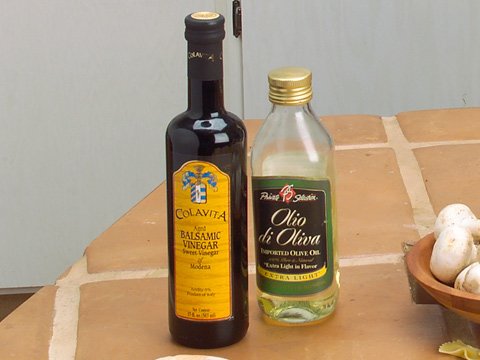How many times do you plan to start a diet, or listen to a friend talk about starting a diet, and the first thing you think of is "less fat", "no fat", "low fat"? Or, you'll be grocery shopping, and you purposely pick the no fat/low fat products out from the aisle?
Now, aside from these products usually being high in sugar (to make up for the loss in taste from having less fat), you may be missing out on an essential nutrient for your body. Especially during times of a huge calorie deficit, fats could be your biggest ally in weight loss rather than your enemy. Find out why below.

Fats: The Chemistry
Bear with me for a little talk about the chemistry of fats. First and most simply, all lipids/fats are composed of the same chemical structure: carbon, hydrogen and oxygen. Good fats and bad fats are all structured alike. The basic structure of a fatty acid is essentially a chain of carbon atoms with a methyl group on one end and an acid carboxyl group on the other end.
When you have a saturated fatty acid, it means that the carbon chain is filled with all the hydrogen bonds it can hold - all of the carbon atoms have a hydrogen attached to them. This makes them heavier and denser. Think of this as the outer fatty part of a steak.
Conversely, an unsaturated fatty acid is a fatty acid that is not completely filled with all the hydrogen atoms it can hold, and thus, it's less heavy and less dense, like olives, olive oil, peanuts, peanut oil, soybean oil, and cottonseed oil.
There are two sub-categories of unsaturated fatty acids: monounsaturated and polyunsaturated. "Poly" is what I'll be discussing in this article. The "poly" part means that in the fatty acid chain, there are two or more unfilled spots attaching to carbons. There are two kinds of polyunsaturated fatty acids, Omega-6 (aka linoleic acid) and Omega-3 (alpha-linoleic).
Omega-3 is most commonly called alpha-linoleic, but EPA (eicosapentaenoic acid) and DHA (docosahexaenoic acid) are the names you also see labeled when you buy EFA pills or fish oil capsules. You'll see why, later.
For those interested, the actual "definition" of an Omega-3 fatty acid is, "essential fatty acid with 18 carbon atoms (this refers to how many carbons are in the chain), and three double bonds (again, because it has more than 1 double bond, it is a poly vs. a mono unsaturated fatty acid)."

"Why Do I Need Fat? I'm Dieting..."
According to "Basic Nutrition and Diet Therapy" by Staci Nix, "Low levels of Omega-3 and Omega-6 fatty acids are linked to hair loss, low blood platelets, impaired vision, altered mental states, learning problems, and growth retardation in children."
So essentially, there's a reason these two fats are known as essential. If we have a deficit, multiple bodily processes, including those required for the brain, central nervous system and cell membrane functions, will be slowed down, or halted.
There's more to it than just that, though. Clinical trials (some preliminary) have been done suggesting the effectiveness of Omega-3 supplementation on: cancer prevention, cardiovascular disease prevention, reducing risk of stroke, brain/cognitive function, arthritis, immune function and possibly some psychiatric disorders. If anyone would like medical journal references, see contact information at the bottom of this article.
There are several ways to not meet your daily minimum quota for fat intake. If you're malnourished, for instance, eating food that is not necessarily nutrient dense, then you could be missing out on your essential fatty acids in addition to other important vitamins and minerals.
Along the same lines, there's orthorexia (an eating disorder summarized by obsession with clean eating, or phobia of eating foods that are "impure" or "unhealthy"—fat is often seen as impure) and anorexia (an extremely restrictive eating disorder—chances are, an anorexic is not meeting his/her daily requirement of any macronutrient, let alone essential fatty acids).
So make sure that your contest prep diet isn't too restrictive to the point where you've cut out all semblances of fats.
Wow! Fats Are Important! How Do I Get More?
There are several different sources of Omega-3 fatty acids; for example, soybean, canola and flaxseed (or chia) oil are all known as "botanical" sources of fat because they come from plants. However, there are also "animal" sources. The most widely available source of EPA and DHA is cold water, oily fish such as herring, mackerel, salmon, and sardines.
If you don't like fish, you can also try grass fed beef (which has a lower ratio of Omega-6: Omega-3—this is a good thing), eggs (look for ones that are Omega-3/DHA enhanced), and some types of milk and cheese.
Total calories coming from fat, in a typical diet, should not exceed 20%-35%. This amount will ensure that you get an adequate amount of your Omega-3 and 6 essential fatty acids. We don't need as many Omega-3's in our diet as we do Omega-6.
The recommendations for linoleic acid are 1.6 and 1.1g/day for men and women, respectively. The preferred ratio of Omega-6/Omega-3 is between 2:1 and 3:1. However, as it stands now in the current American diet, the ratio is more like 8:1 to 12:1.
Eat Fat, Get Fat? No Way!
Studies have shown that you can eat fat and lose fat! As long as you're in a caloric deficit (eating less calories than you burn), then having fatty acids in the blood stream means that you'll burn them as energy; subsequently leading to burning more body fat.
A study presented at the Annual Meeting of the American Society for Clinical Nutrition claimed that in women who were on very low caloric diets (who you'd expect would drop off in their rate of fat loss eventually), "Fats (Omega-3's) accelerated removal from adipose tissue indicates either a preferential step in Beta-oxidation or a defined need during supplemented fasting which exceeds its rate of provision from adipose stores."
This means that Omega-3 is very important during the fat burning process (Beta-Oxidation means that fatty acids are broken down to create a usable form of energy), and it's required even during states of fasting because it can help burn more fat.
Another way Omega-3 fatty acids help fat loss is by taking fats with your meals you're actually lowering the glycemic load of the meal; implying that the insulin spike that comes with food consumption won't be as high because fats help lower it.
Conclusion: Embrace The Oil
The most important message I'm trying to get across is that regardless of whether you're in bulk, cut, maintenance, or recomp mode, there's never a reason to avoid fats, especially polyunsaturated Omega-3's.
They do more good (remember they help with brain function, joint lubrication, skin health, and fat loss) than harm. As long as you balance your calories and keep an eye on them, fats can be your biggest friend in your goals to a healthier and better looking you!
References
- Williams' Basic Nutrition and Diet Therapy: 13th edition Food and Nutrition Board, Institute of Medicine of the National Academies (2005), pp.423
- Food and Nutrition Board, Institute of Medicine of the National Academies (2005), pp.770http://www.springerlink.com/content/22725753q27k376g/
